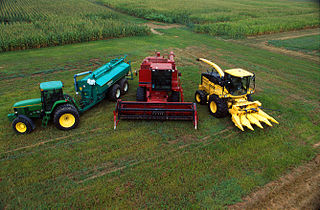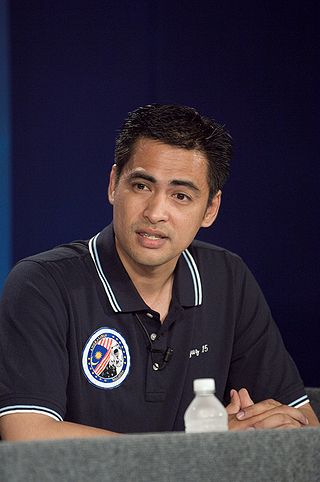
The Food and Agriculture Organization of the United Nations (FAO) is a specialized agency of the United Nations that leads international efforts to defeat hunger and improve nutrition and food security. Its Latin motto, fiat panis, translates to "let there be bread". It was founded on 16 October 1945.

Agritourism or agrotourism involves any agriculturally based operation or activity that brings visitors to a farm or ranch.

The Common Agricultural Policy (CAP) is the agricultural policy of the European Union. It implements a system of agricultural subsidies and other programmes. It was introduced in 1962 and has since then undergone several changes to reduce the EEC budget cost and consider rural development in its aims. It has however, been criticised on the grounds of its cost, its environmental, and humanitarian effects.

An agricultural subsidy is a government incentive paid to agribusinesses, agricultural organizations and farms to supplement their income, manage the supply of agricultural commodities, and influence the cost and supply of such commodities.

The Department for International Development (DFID) was a department of HM Government responsible for administering foreign aid from 1997 to 2020. The goal of the department was "to promote sustainable development and eliminate world poverty". DFID was headed by the United Kingdom's Secretary of State for International Development. The position was last held by Anne-Marie Trevelyan, who assumed office on 13 February 2020 and served until the department was dissolved on 2 September 2020. In a 2010 report by the Development Assistance Committee, the department was described as "an international development leader in times of global crisis". The UK aid logo is often used to publicly acknowledge DFID's development programmes are funded by UK taxpayers.

CGIAR is a global partnership that unites international organizations engaged in research about food security. CGIAR research aims to reduce rural poverty, increase food security, improve human health and nutrition, and sustainable management of natural resources.
Information and communication technology in agriculture, also known as e-agriculture, focuses on the enhancement of agricultural and rural development through improved information and communication processes. More specifically, e-agriculture involves the conceptualization, design, development, evaluation and application of innovative ways to use information and communication technologies (ICTs) in the rural domain, with a primary focus on agriculture. ICT includes devices, networks, mobiles, services and applications; these range from innovative Internet-era technologies and sensors to other pre-existing aids such as fixed telephones, televisions, radios and satellites. Provisions of standards, norms, methodologies, and tools as well as development of individual and institutional capacities, and policy support are all key components of e-agriculture.

The IBSA Dialogue Forum is an international tripartite grouping for promoting international cooperation among these countries. It represents three important poles for galvanizing South–South cooperation and greater understanding between three important continents of the developing world namely, Africa, Asia, and South America. The forum provides the three countries with a platform to engage in discussions for cooperation in the field of agriculture, trade, culture, and defence among others.

The Global Alliance for Improved Nutrition (GAIN) is a non-profit foundation based in Geneva, Switzerland. GAIN was developed at the UN 2002 Special Session of the General Assembly on Children. GAIN’s actions include improving the consumption of nutritious and safe foods for all. They are supported by over 30 donors and work closely with international organisations and United Nations agencies. Their activities include improving consumption of nutritious food globally. The organisation has a 20 year history of food system programmes: focusing on adolescent and child nutrition, food system research, fortification, small and medium enterprise assistance, biofortification of crops and reducing post-harvest losses.

Self Help Africa is an international charity that promotes and implements long-term rural development projects in Africa. Self Help Africa merged with Gorta in July 2014, and in 2021 merged with UK-based INGO, United Purpose. The organisation also owns a number of social enterprise subsidiaries - Cumo Microfinance, TruTrade and Partner Africa.
An agricultural attaché is a diplomat who collects, analyzes, and acts on information on agriculture, agribusiness, food, and other related spheres in a foreign country or countries. Agricultural attachés may be directly employed by the sending country's agriculture ministry, or they may be employed by the foreign ministry. Typical activities of an agricultural attaché include reporting on crop conditions, food availability, domestic agricultural policy and the foreign trade outlook in agricultural commodities; negotiating food aid agreements and agricultural credit lines; implementing agricultural technical assistance programs; facilitating professional contacts, exchanges, and technology transfer; assisting in negotiating bilateral and multilateral trade agreements; and promoting the exports of agricultural and food products. In many cases, agricultural attachés may also bear responsibility for issues related to the environment, food security, food safety, fisheries, forestry, and indeed anything related to rural areas and the rural economy.
Alliance for a Green Revolution in Africa (AGRA) is an organisation that seeks to transform African agriculture from a subsistence model to strong businesses that improve the livelihoods of the continent’s farming households.

Science policy in Malaysia is regulated by the Ministry of Science, Technology, and Innovation. The ministry focuses on five areas: biotechnology, ICT policy, industry, sea to space and core science and technology. Other ministries, such as the Ministry of Agriculture and the Ministry of Health also have science departments. Training in scientific areas was promoted during the 1970s and 1980s. From 1987 to 1997 research and development used 0.24% of GNP, and in 1998 high-tech exports made up 54% of Malaysia's manufactured exports.
The Regional Strategic Analysis and Knowledge Support System (ReSAKSS) was established in 2006 and compiles and analyzes information to help design and evaluate rural development strategies and monitor the progress of the Comprehensive Africa Agriculture Development Programme (CAADP). CAADP is a program of the African Union and the New Partnership for Africa's Development (NEPAD), which aims to increase the share of national budgets allocated to agriculture.
Agri-Energy Roundtable (AER) is a nonprofit and non-governmental organization accredited by the United Nations and established in 1980 as a forum for encouraging dialogue on cooperative energy and agricultural development between industrialized and developing nations. AER conducts international conferences, regional seminars and workshops, trade missions and technical assistance for the formation of autonomous indigenous counterpart associations.

The International Institute for Sustainable Development (IISD) is an independent think tank founded in 1990 working to shape and inform international policy on sustainable development governance. The institute has three offices in Canada - Winnipeg, Ottawa, and Toronto, and one office in Geneva, Switzerland. It has over 150 staff and associates working in over 30 countries.
European Marketing Research Centre (EMRC) (is a not-for-profit international association, founded in 1992 in Brussels, Belgium. The organization exists to encourage and facilitate private sector investment in Africa to create sustainable economic development and drive regional change through international partnerships. EMRC is a collective network of entrepreneurs, financiers, consultants and officials based throughout the world. The organization’s strategic focus is to support economic development in Africa through partnership between African entrepreneurs and ventures and international corporations, and financial services firms. EMRC also supports intercontinental collaboration between African ventures.

The Board for International Food and Agricultural Development (BIFAD) advises the United States Agency for International Development (USAID) on issues concerning agriculture, higher education in developing countries, and food insecurity. BIFAD was established by Title XII of the Foreign Assistance Act, and both the BIFAD board and Title XII recognise the critical role of U.S. land-grant institutions in food and agricultural security, domestically and abroad. BIFAD consists of seven board members appointed by the White House, four of which must have been part of the US Academic community. The board's mission is to draw on the expertise and scientific knowledge of those in higher education to advise the US international assistance on effect domestic efforts to end food insecurity.

Young Professionals for Agricultural Development (YPARD) is an international movement for young professionals. YPARD operates as a network in 72 countries through its chapters. This multi-stakeholder platform's main mission is to serve as a collective global network that enables young professionals to realize their full potential and contribute proactively towards innovative and sustainable agricultural development.













